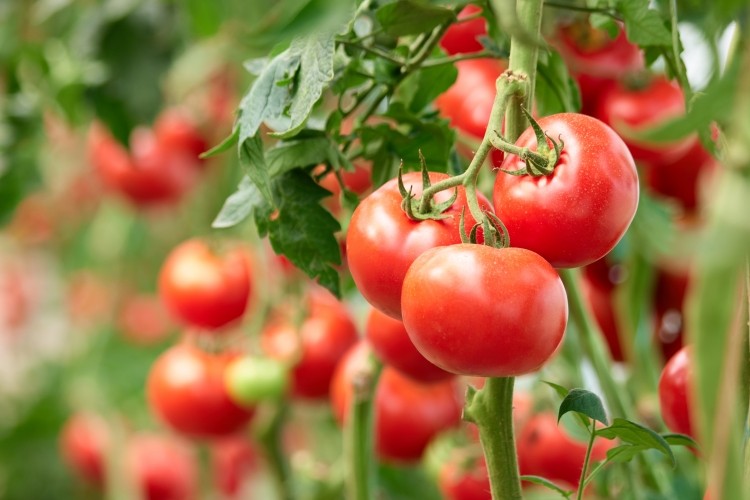Greenhouse looks to sewage farms for future of sustainable food production

UK-based Low Carbon Farming has revealed its plans for an innovative greenhouse solution, replacing traditional gas-fired methods through harnessing waste heat from nearby sewage farms resulting in low carbon British produce.
The Brighton-based company's approach works by using heat pumps to capture waste heat from nearby water recycling centres, thus displacing traditional gas-fired greenhouse heating methods. It hopes its method will increase significantly the production of low carbon, British produce.
It plans to open two world-first, wastewater-heated greenhouses in East Anglia later this year. It said investment of £120 million is expected to create 360 new green economy jobs, rising to 480 in high season. The greenhouse’s high productivity, hydroponic growing system will use 10x less water, increase British tomato production by 12%, and reduce the carbon emissions associated with doing so by 75%. Even then, Britain will still import more than 70% of its tomatoes and increase British tomato production by 12%.
Low Carbon Farming’s East Anglian projects will supply low carbon, British tomatoes to retailers including Subway and Sainsbury's.
With the resilience of British food systems being pushed to the limits by the coronavirus pandemic, and buoyed by the UK’s commitment to achieve net zero emissions by 2050 and the impending release of the Government’s clean heat strategy, Low Carbon Farming has also unveiled plans for a nationwide roll-out of sustainable infrastructure and has identified potential sites for a further 41 giant, low carbon greenhouses.
It said these sites could create over 8,000 new jobs, invest £2.67 billion into regional economies and increase the UK’s clean heat output by almost 3 TWh per annum.
According to the company, the plan represents a significant advance for national food resilience, capable of seeing the UK become self-sufficient in tomatoes and cucumbers, while removing the food miles associated with importing such produce. It suggested that growing capacity is likely to be allocated to a wider range of produce, including peppers and flowers.
Andy Allen, a Director at Low Carbon Farming, said: “Our East Anglian projects provide British farming with a bankable template for the nationwide roll-out of transformative, renewable heat solutions. Having secured the financing and proven the business model, and with the case for secure and sustainable British produce having been thrown into such sharp focus, it’s time to plan for the next stage.”
Anglian Water is working with Low Carbon Farming on the first projects to supply the waste heat and in doing so solve the environmental challenges associated with heating local water courses.
David Riley, Head of Carbon Neutrality at Anglian Water said: “These projects are helping us fulfil our environmental obligations and represent the kind of innovative approach to sustainability we are embracing right across our business in our own challenge to become zero carbon by 2030. Finding alternative sustainable uses for land close to water recycling centres which also make use of excess energy makes sense for UK businesses.”
'It’s now perfectly possible to strip the carbon out of British growing'
A fund managed by Greencoat Capital, the UK’s largest investor in renewable energy, acquired the two East Anglian projects in September 2019. James Samworth, Partner at Greencoat Capital, said: “Renewable heat is a new frontier for UK climate action and every sector will need to play its part. Our projects have demonstrated that it’s now perfectly possible to strip the carbon out of British growing and, with the appropriate policy environment in place, we look forward to considering the role we can play in financing a wider roll-out of this solution.”
Baroness Natalie Bennett of Manor Castle, former Leader of the Green Party and a long-time advocate of sustainable farming practice, said: “We need a proper food strategy in England (Wales and Scotland already have more or less decent ones). Our diets are deeply unhealthy and our farmers often face an unnecessary trade-off between the commercial and the environmental.
“British farming must increase its production of fruit and vegetables many times over but in a manner compatible with our net zero commitment. That’s why this waste-based innovation is so exciting: it smashes both boxes and establishes a highly replicable template for policy-makers to build upon.”






















